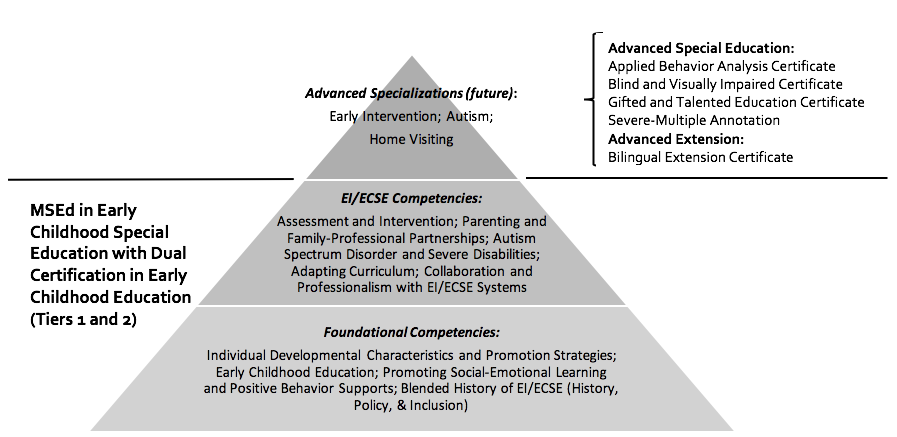Further Information for New and Current Students
Introductory Webinar
All new students to the Early Childhood and Learning: Diverse Children and Families (MSEd) program should view the introductory webinar.
Statement on Privacy
We are learning more and more about protecting the privacy of Hunter students as well as the children and families with whom they interact in this age of technology. All email communications between you and Hunter College faculty and staff must occur via the Hunter email systems (@hunter.cuny.edu, @myhunter.cuny.edu). As such, please use only your Hunter email addresses to communicate with your professors (including field supervisors), advisor, and administration. Because we all need to comply with this, if you email a professor from a non-Hunter email, we will reply asking you to send the message via your Hunter email. You can download the Hunter email systems onto your phones to be as accessible as other email systems.
Hunter College Early Childhood and Learning: Diverse Children and Families (MSEd) Program Framework

The focus spans children and families across diverse cultures, languages, abilities, settings, age, and urban contexts
Vision
- Comprehensive preparation across ages (birth-8yr. old) and developmental status, including children with Autism Spectrum Disorder (ASD) and severe disabilities
- Quality inclusive practices within systems, societal, and professional supports
- Use of data-driven decision-making and evidence-based practices with fidelity
- Integrated/balanced approach of theories, research bases, and practices
- Blended approach of general education and special education methods
- Clear linkages of theory and research to applied practice
- Creative integration of technology
- Desired by high quality candidates
- Development of emerging leaders and advocates who can serve as change agents at the programmatic, local, state, or federal levels
- Emphasis on what it means to be an emerging professional
Competencies
Candidates will demonstrate these competencies with children and families across diverse cultures, languages, abilities, settings, age, and urban contexts.
Program graduates will be able to:
- Assess individual children’s strengths and needs within authentic contexts, and individualize interventions that promote learning across developmental and curricular domains.
- Assess and evaluate social and physical contextual factors to implement interventions to positively influence learning and development of children.
- Demonstrate the use of data-based decision making processes in their everyday work.
- Choose and effectively implement applicable evidence-based practices/ intervention strategies using both ECE & ECSE methods with fidelity.
- Consume, critique, and apply the current EI/ECSE evidence base in their professional repertoire.
- Create, critique, and frequently integrate a variety of low and high technology tools & applications into daily practice.
- Engage in reflection to improve practice as a means of self-monitoring and ongoing professional development.
- Effectively partner with other team members, including families, across disciplines and systems, to plan, implement and evaluate interventions that fit the developmental strengths and needs of individual children.
- Demonstrate professionalism in their communication and interactions with others across all media, and assume responsibility in their role as an emerging professional.
- Analyze the current landscape then prioritize and mobilize to enact a plan for manageable change at the programmatic, local, state and/or federal level.

